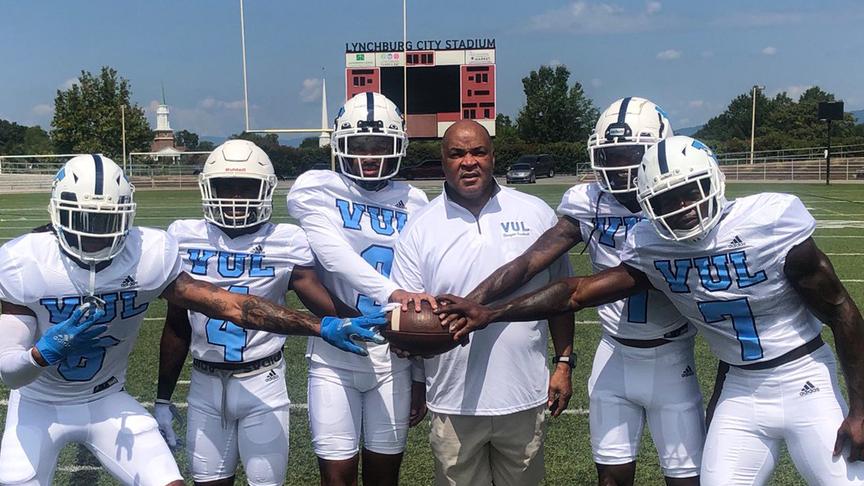
The Virginia University-Lynchburg Dragons are in a rare and dubious class in college football. Along with schools like Lincoln University in Oakland, CA, they are non-NCAA or NAIA affiliated schools that appear on several FCS and Division II schedules each college football season. The Dragons mostly take to the road. This year is no different.
The Dragons have eight road games, including an unenviable stretch of seven in a row to begin the season. Unaffiliated schools Atlantis University, South Carolina Central Christian College, and Lighthouse Christian College fill the small home slate the Dragons do have.
One road game sticks out above the rest. It is not the road game against the 2022 Black College Football National Champions or a trip to the New York City metro area to play Wagner that highlights the schedule.
Surprisingly, the highlight of their schedule is a visit to the Circle City to play Pioneer Football League member Butler. From a layman’s perspective, it is hard to call a game against a school from the weakest FCS conference with only one FCS Playoff appearance the highlight of any school’s schedule. However, the importance of this game for Virginia University-Lynchburg goes beyond on-field results.
Indianapolis is a hotbed for Black College Football. Except for a 2022 hiatus, the Circle City Classic at the RCA Dome and later Lucas Oil Stadium has been a staple of the HBCU schedule since its inception in 1984. Black College Football’s most enduring brands have played in the Circle City Classic, including Grambling, Florida A&M, Tennessee State, and Southern.
Despite being an HBCU, the Circle City Classic will never invite Virginia University-Lynchburg. The university’s tiny enrollment of 558 students, as reported in 2021, will never attract the attention of the game’s organizers. Their lack of success on the gridiron and reputation as a “punching bag” for FCS schools does not help their prospects of appearing in the Circle City Classic or any neutral site classic.
This road game against Butler is the closest Virginia-Lynchburg will ever get to play in the Circle City Classic. Still, it is a satisfying consolation for the university. Virginia University-Lynchburg can use this visit to market its university to a new region with an extensive Black population.
Census Bureau population estimates from July 2023 estimate that 28.8% of Indianapolis is African American. The African American population’s presence in Indianapolis pushed Notre Dame to schedule Tennessee State for its first game against an HBCU in 2023.
Despite Indianapolis' significant Black population, the region has few HBCUs nearby. This circumstance presents a golden opportunity for Virginia University-Lynchburg to market itself, a crucial one, given the university’s triple-digit enrollment numbers.
Additionally, they can recruit athletes who want to play against Division 1 competition that Missouri Valley Football Conference, Ohio Valley Conference, and even Pioneer Football League schools passed on.
Finally, the Dragons will play in the Bud and Jackie Sellick Bowl, one of the most historic stadiums in the FCS. Opened in 1928, the Sellick Bowl hosted Big Ten schools, Purdue and Illinois in days past, a feat few FCS stadiums can claim.
Playing in a stadium with as rich a history and a storied list of opponents is a rare opportunity for the Dragons. While Lucas Oil Stadium is a more famous venue than the Sellick Bowl, its history comes nowhere close to its crosstown counterpart.
While the result will likely end in another defeat at the hands of a Division I school, the impacts for Virginia University-Lynchburg are significant. Their appearance in the Circle City will not come beneath the bright lights of Lucas Oil Stadium. Yet, it can still benefit the university substantially.
Virginia University-Lynchburg can facilitate a surge of Midwestern applicants and open itself to new talent in the region if they take advantage. Playing in a city synonymous with Black College Football will boost Virginia University-Lynchburg beyond the box score.
